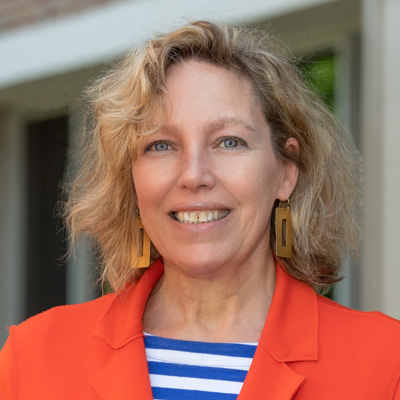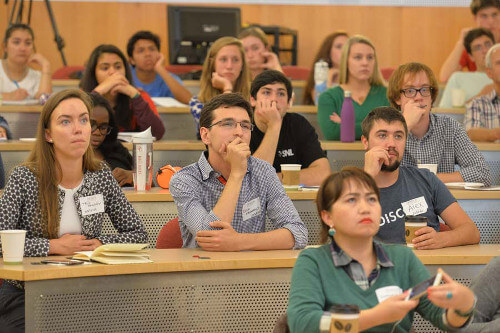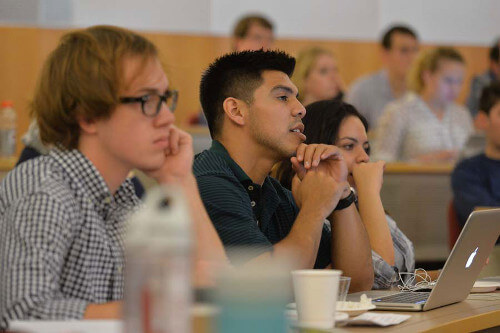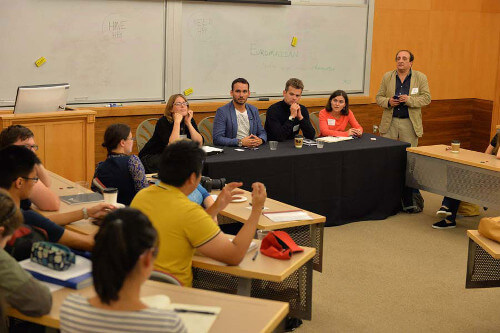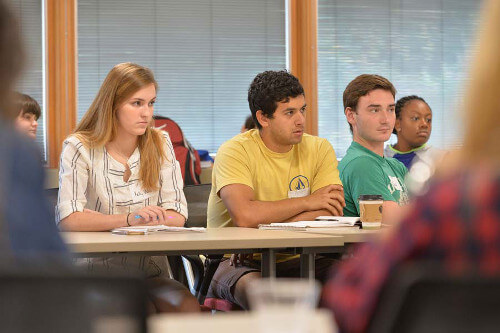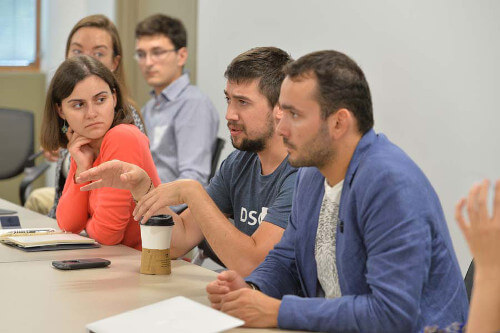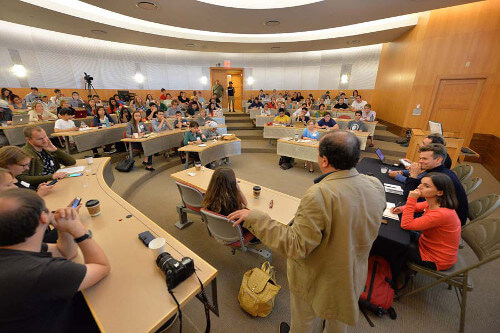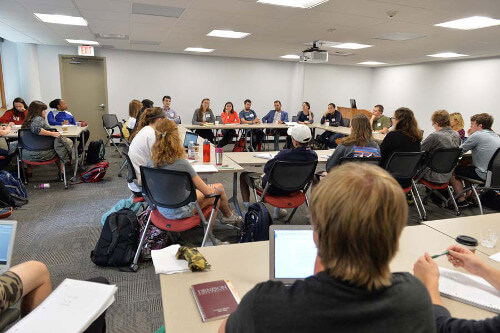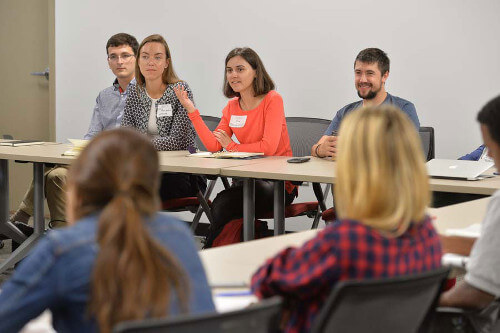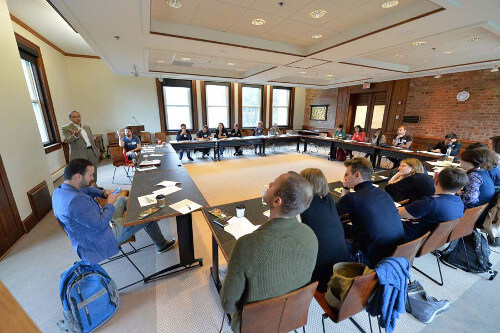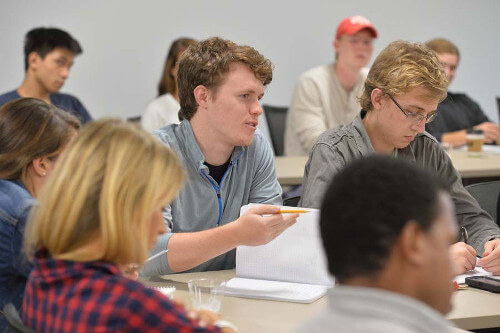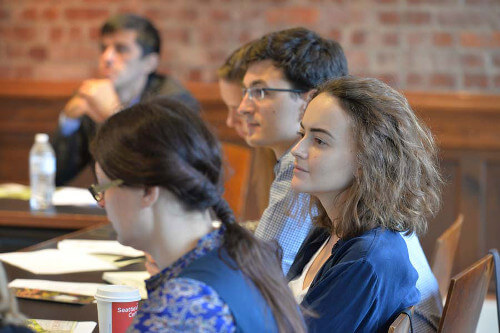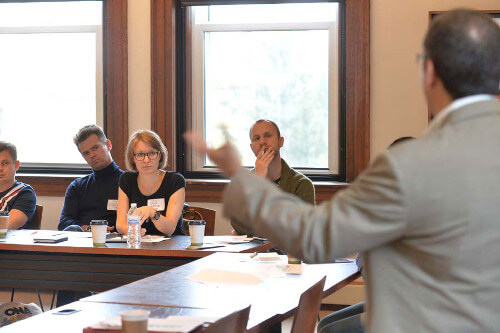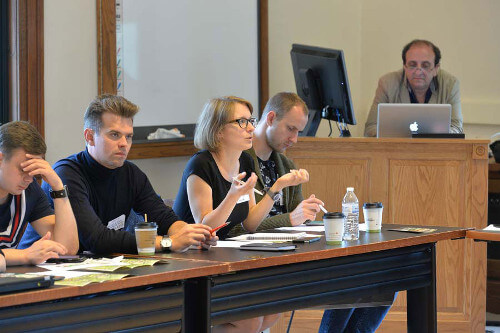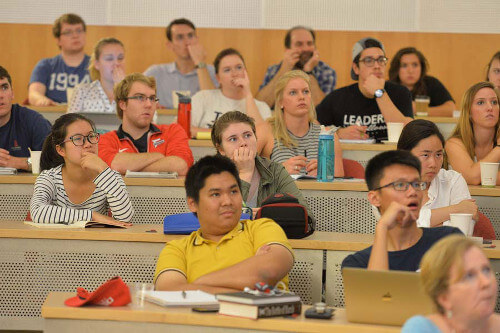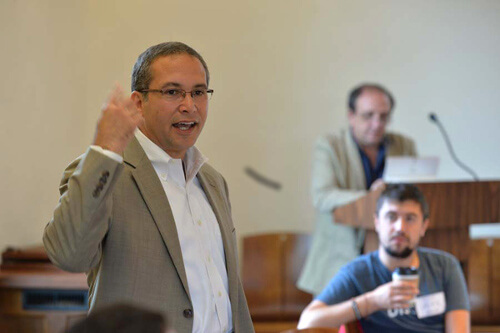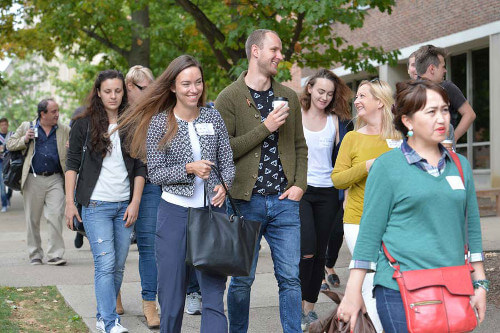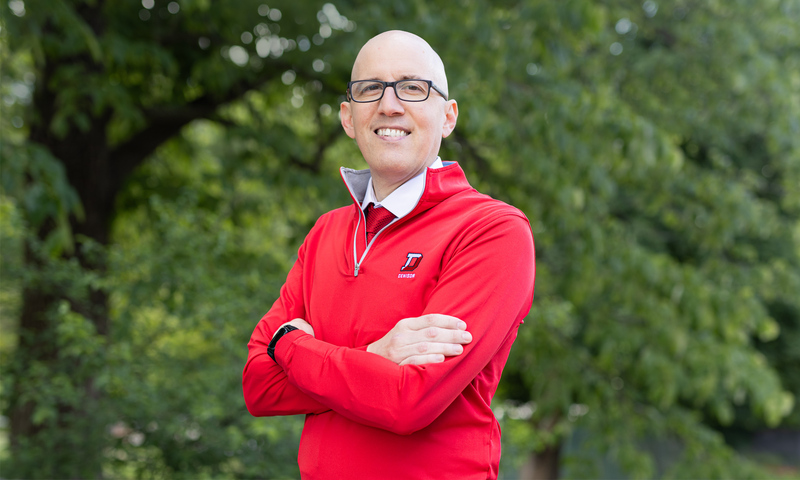Armenia, Azerbaijan, Estonia, Georgia, Kazakhstan, Kyrgyzstan, Latvia, Lithuania, Moldova, Tajikistan, and Ukraine. Distant countries, and all of them were represented here last month in a conference of 25 media and communication professionals, hosted by Denison and the global education organization, World Learning.
Activists, leaders and visionaries, the conference guests held panels and discussions through the course of the day on the topics of entrepreneurship, social media and free press in the former Soviet space. Much of the emphasis was on the role of Russian propaganda in regional conflicts, and how these countries are working to counter that propaganda and create a more balanced media environment.
President Weinberg, who served as president and CEO of World Learning before coming to Denison, hoped that “by interacting with emerging global leaders from a range of countries, students had a chance to deepen their own views on a range of political and cultural issues.”
Most students who attended the conference came from International Studies, Communication and Political Science backgrounds. As a result, the conversation was engaging and challenging. For those of us accustomed to reading American news, hearing first-hand accounts of the realities in this part of the world brought an enlightening perspective.
The Entrepreneurship panel gave students some practical insights into the importance of demonstrating initiative in starting careers in the field of media and communication. Simply asking questions and showing real interest in a company can be the key to earning an internship there. One panelist pointed out that smaller companies and startups sometimes provide a far richer learning experience than larger ‘brand name’ companies.
Discussions through the day ranged between general concerns to more specific instances of how media can be a tool to both limit and broaden understanding. The day’s last panel discussion illuminated how media is used by the Russian government to demonize Eastern European countries that wish to become democracies, depicting them as ‘evil’. The conversation demonstrated how effective media could be in shaping perception and, ultimately, action.
Political Science Professor and Interim Director of Off-Campus Studies, Sue Davis coordinated the World Learning Conference at Denison. Davis was interested in broadening the horizons of Denison’s students and also the panelists themselves.
“I was very happy that Denison could offer a venue where our students had a chance to interact with global professionals,” said Davis. “The goals for this event were to help students engage with the issues in the former Soviet region, learning more about media, freedom, and entrepreneurialism there, as well as offering students international perspectives on world affairs. In addition, the panelists had a chance to talk to US college students and learn more about how they view the world. Facilitating that kind of exchange of perspectives is really important to a global education.”
